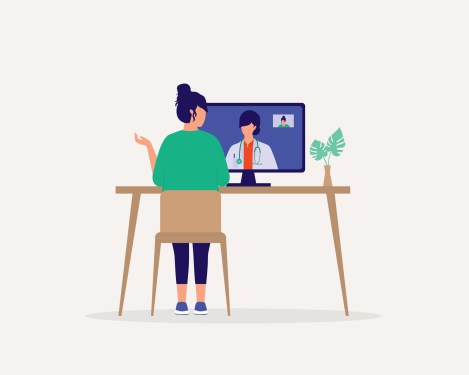AI-Enhanced Healthcare: Are Chatbots Helping or Hurting Our Health Decisions?

As the healthcare landscape grows increasingly overwhelming with long wait times and soaring costs, many individuals are turning to AI-driven chatbots for medical advice. A surprising 16% of American adults are now consulting these digital assistants monthly for health-related inquiries. This trend highlights a crucial shift towards technology in our healthcare decisions. However, a recent study from Oxford raises concerning questions about the effectiveness of these AI tools in delivering accurate health guidance.
The research, involving approximately 1,300 UK participants, revealed a concerning disconnect in how users interact with chatbots compared to traditional medical advice sources. Participants were presented with fictional health scenarios and tasked to identify potential medical conditions. While some turned to AI applications such as ChatGPT, they often fared no better than those relying on conventional online searches or personal insight. The study emphasized that chatbot users frequently missed vital information or misinterpreted the responses, contributing to poorer health decisions.
Adam Mahdi, who co-authored the study, pointed out that many chatbot users delivered insufficient details in their queries. The AI’s responses, which varied in quality, often combined sound advice with misleading or unclear recommendations. This complexity underscores the inadequacies of current evaluation methods for AI in healthcare, which do not capture the challenges faced by human users.
In light of these findings, major tech companies are under pressure to ensure that AI can effectively facilitate health outcomes. Notably, Apple is reportedly working on an AI system aimed at providing personalized wellness advice, while Amazon investigates AI-driven insights into medical databases to address health determinants.
However, healthcare professionals remain cautious. Concerns have been voiced regarding the readiness of AI for critical health decisions. The American Medical Association has recommended against using AI chatbots like ChatGPT for clinical guidance, echoing warnings from organizations such as OpenAI about the risks of basing diagnoses solely on these systems’ outputs.
Mahdi advises individuals to seek reliable health information from established sources rather than relying solely on AI. Just as clinical trials assess new medications’ efficacy, similar rigorous testing should ensure AI tools are equipped to meet the complexities of real-world healthcare needs. As reliance on chatbots continues to grow, it becomes imperative that both users and developers work towards enhancing the AI experience to provide clear, actionable health advice.
Interested readers can explore more on AI’s role in healthcare through insightful articles from HealthTech Magazine and the National Institutes of Health.
